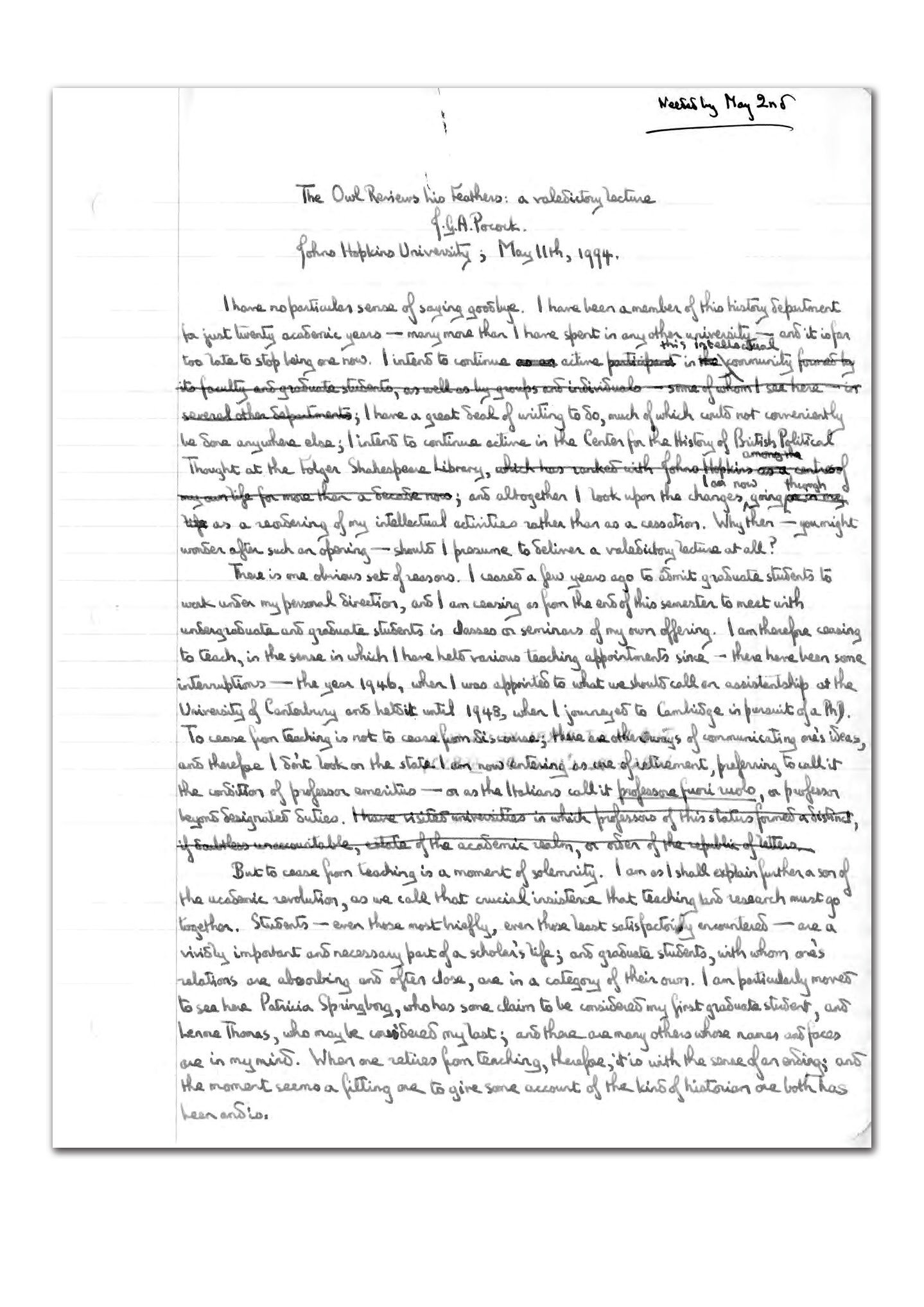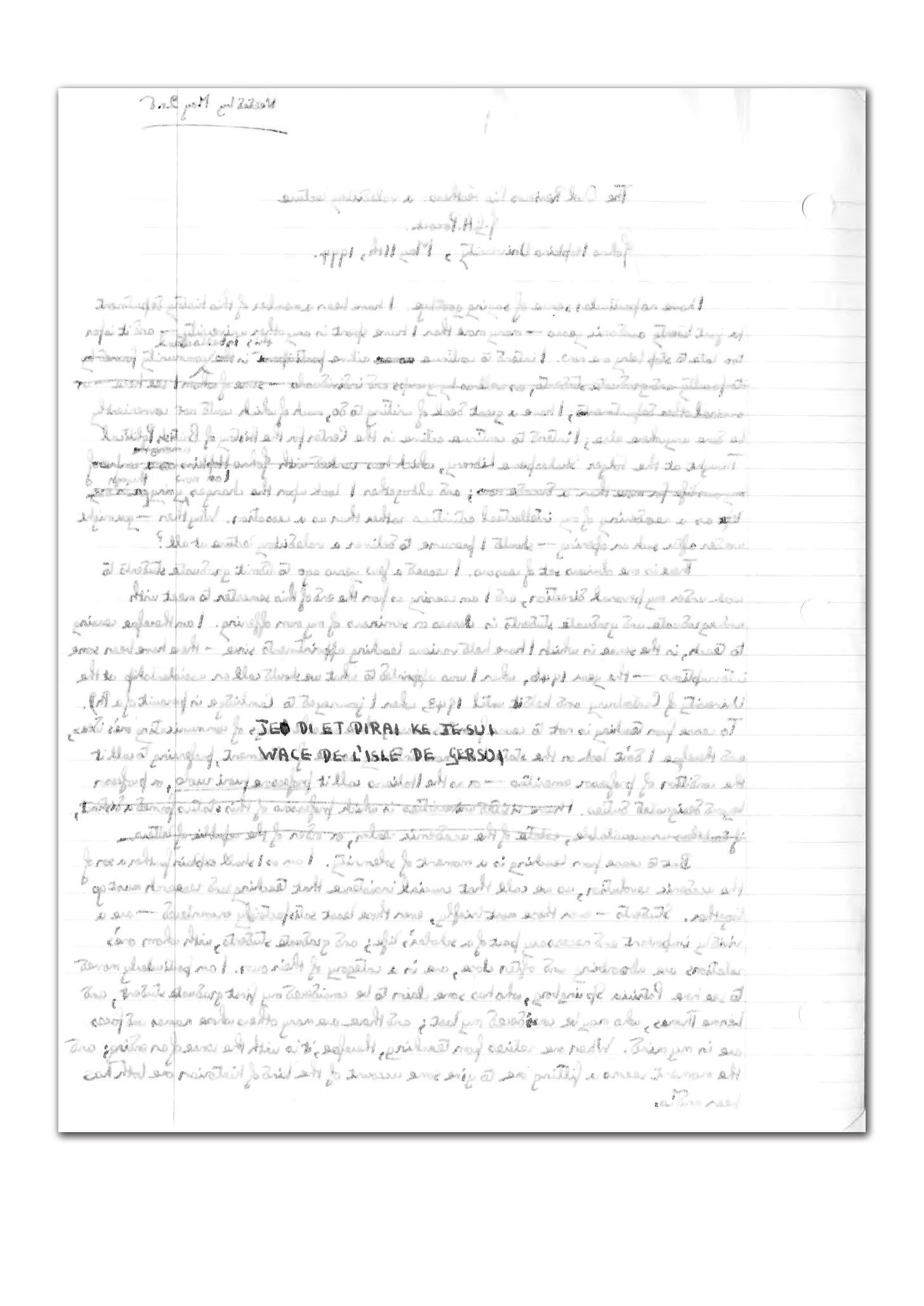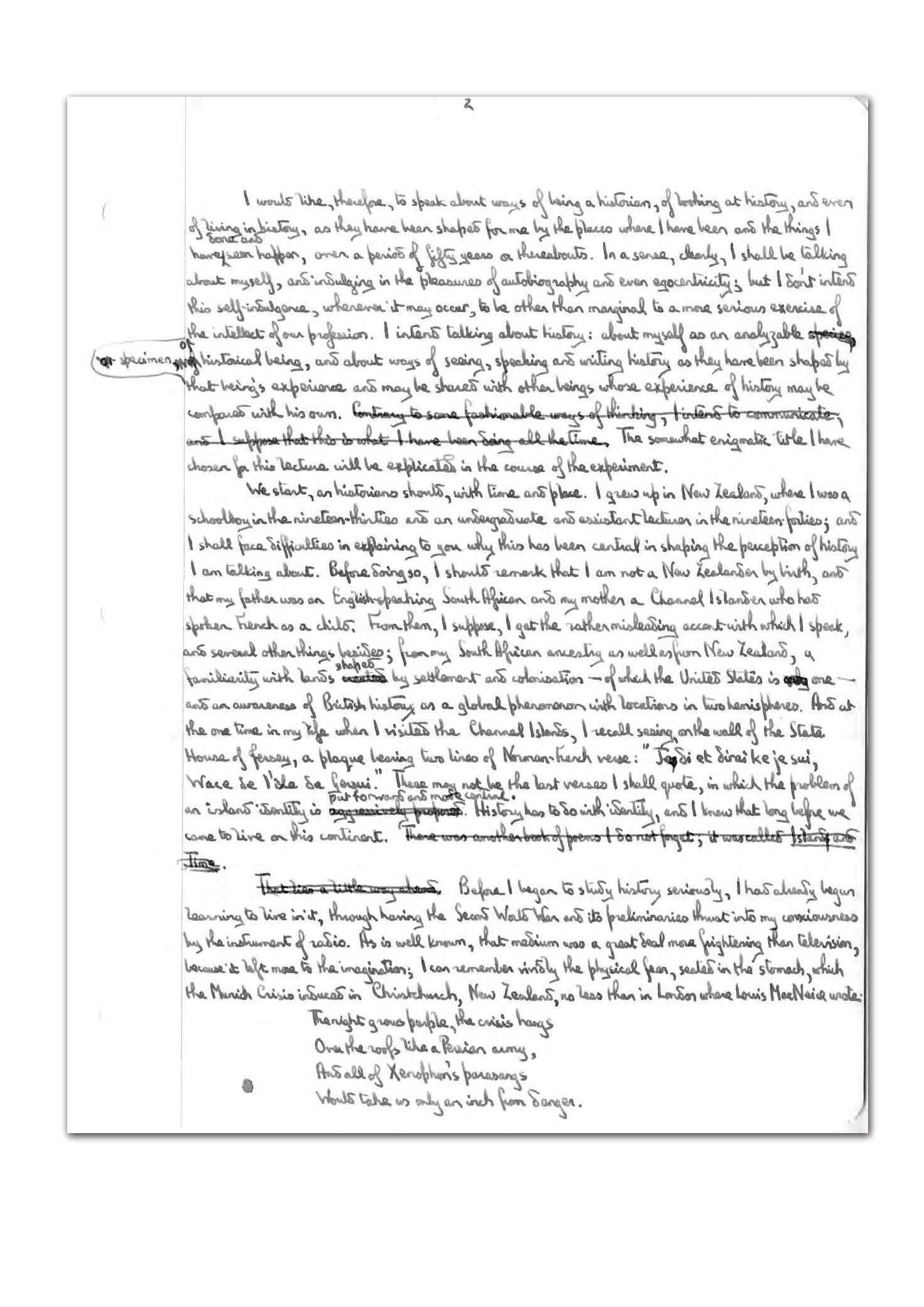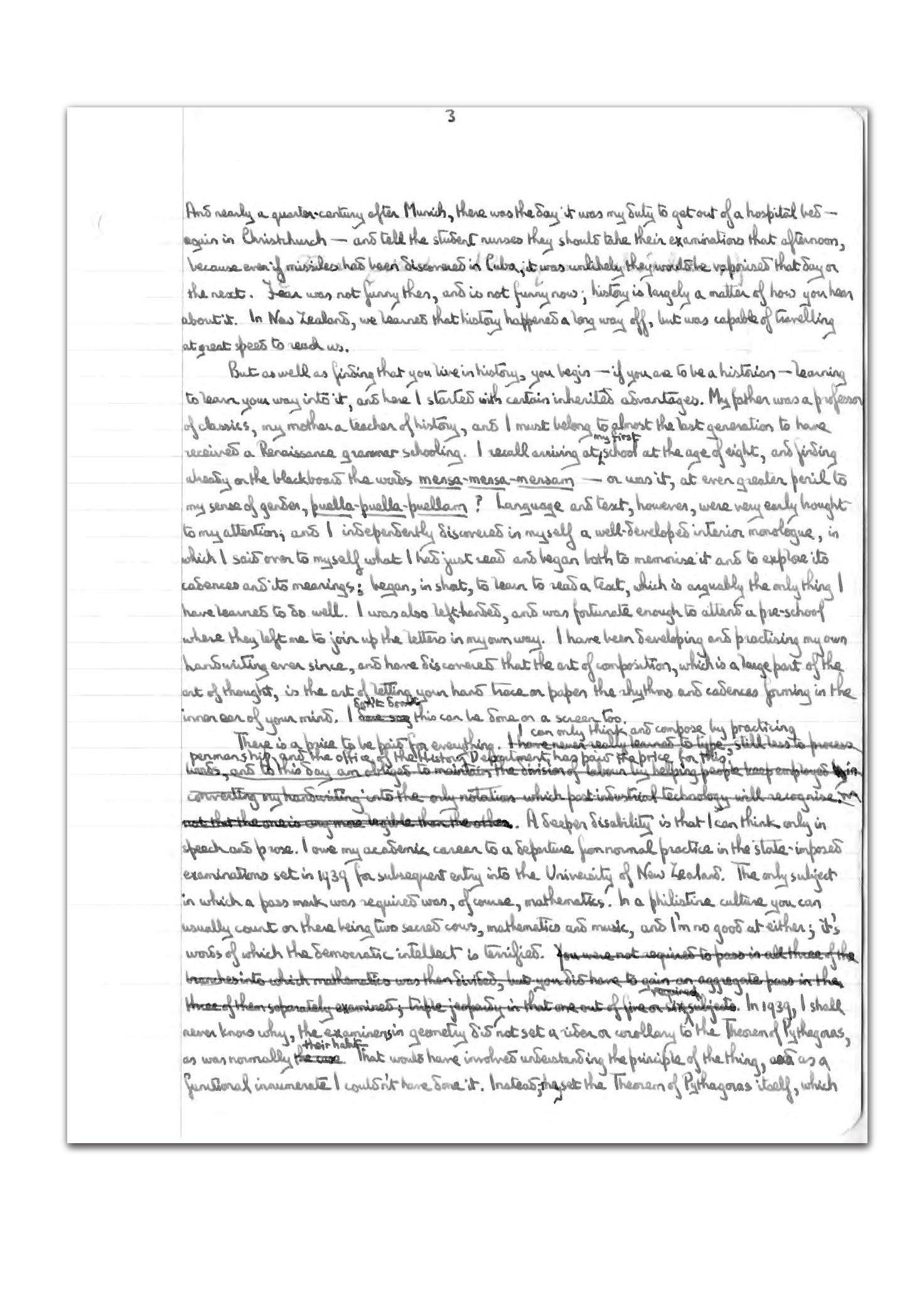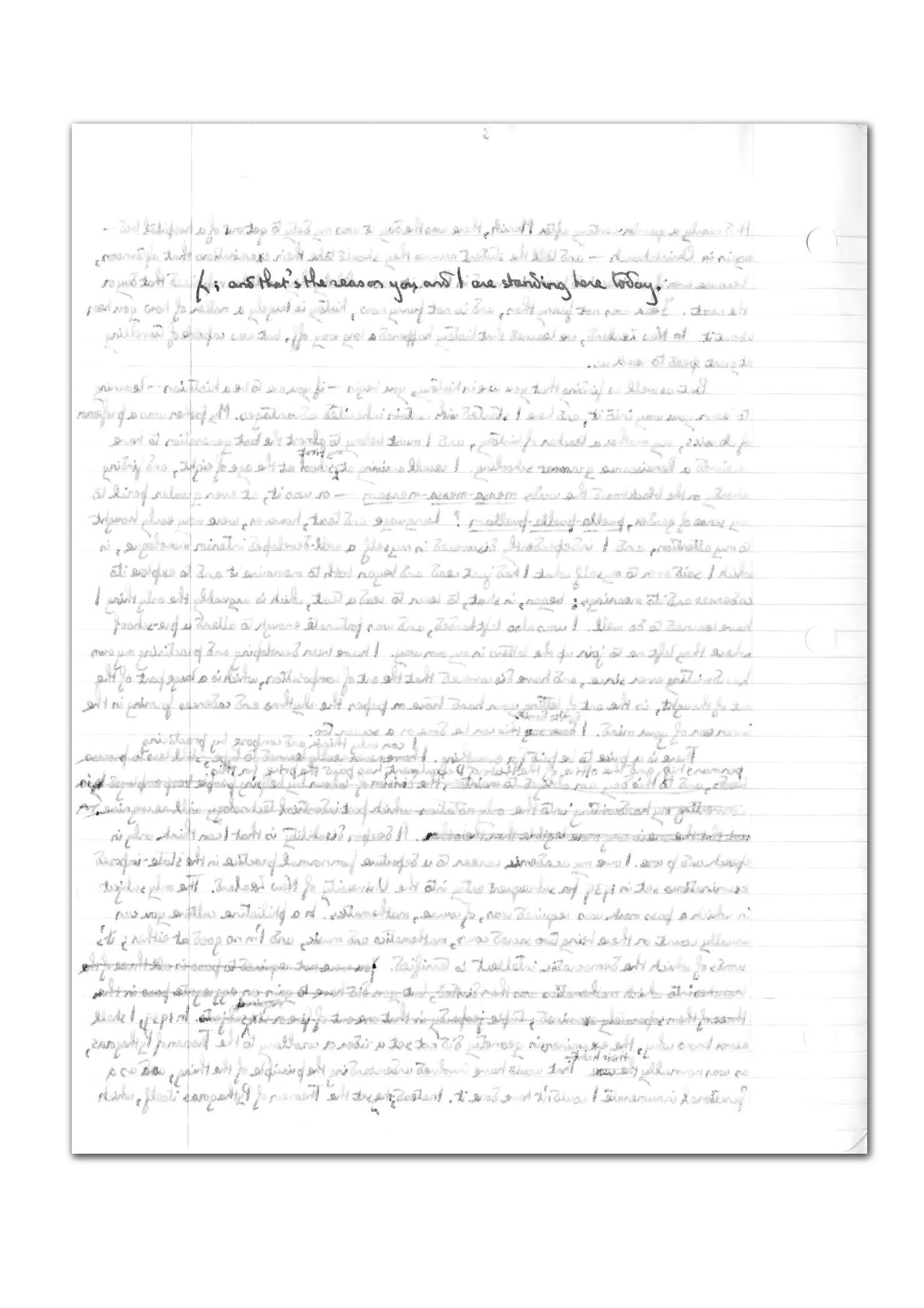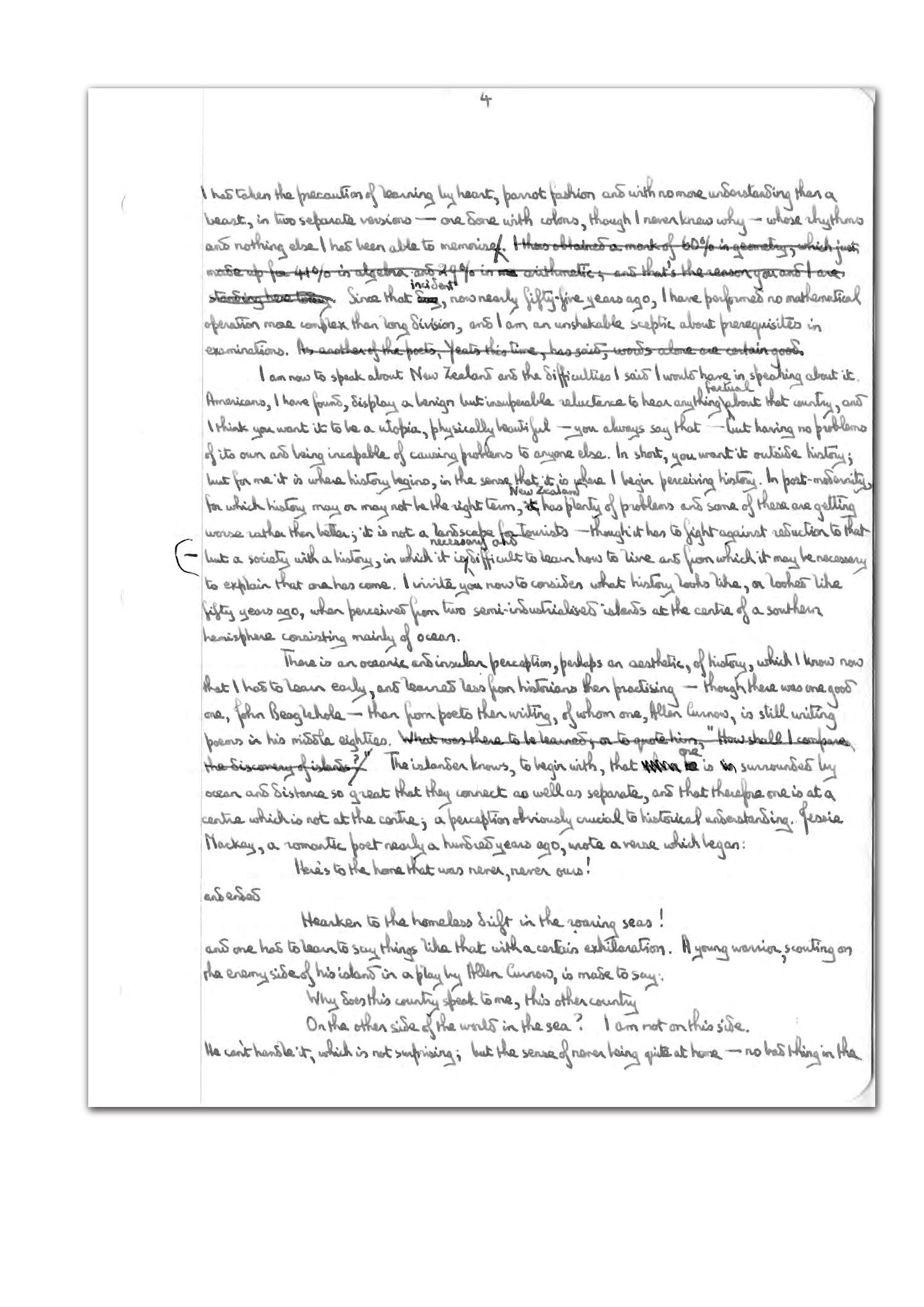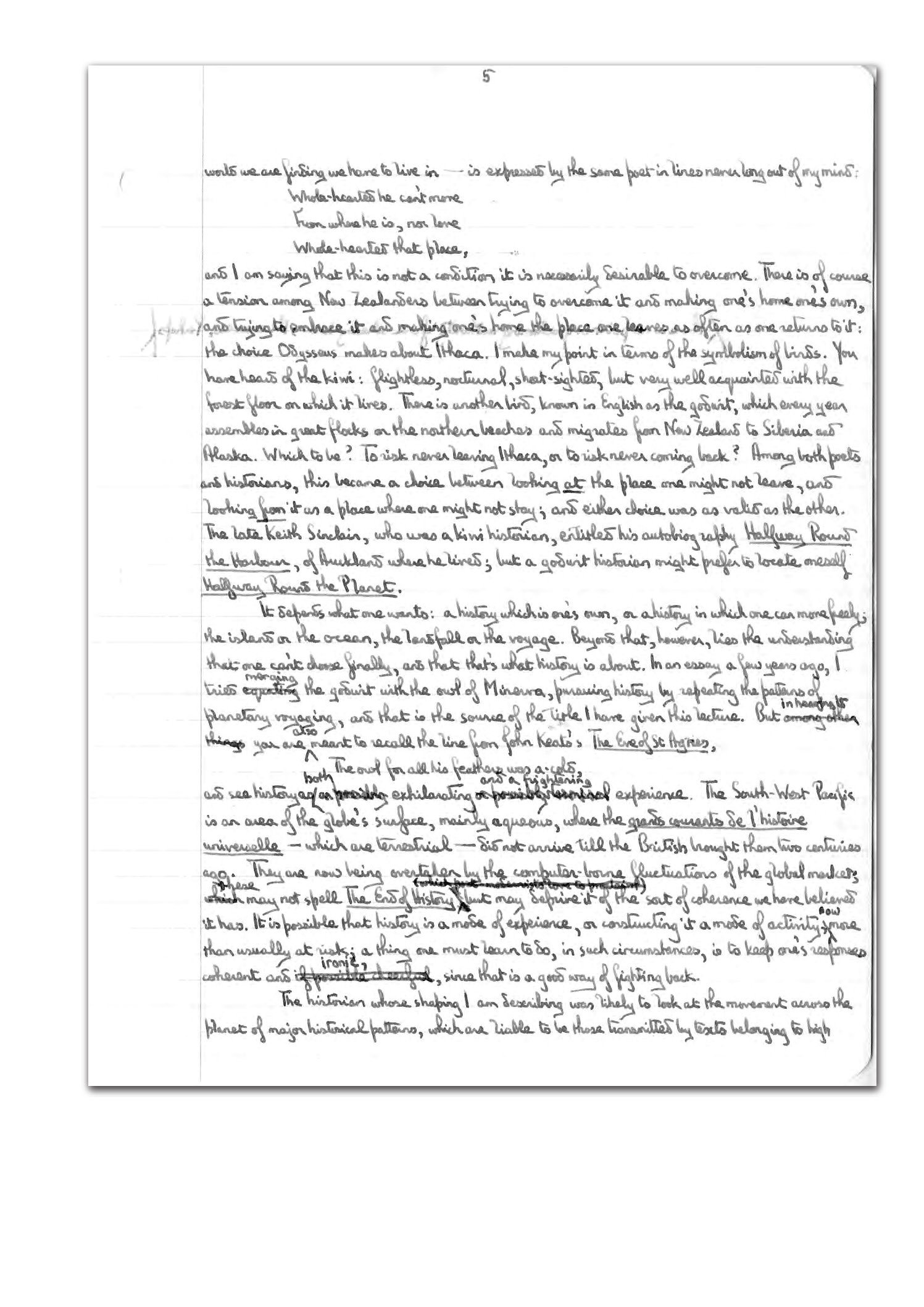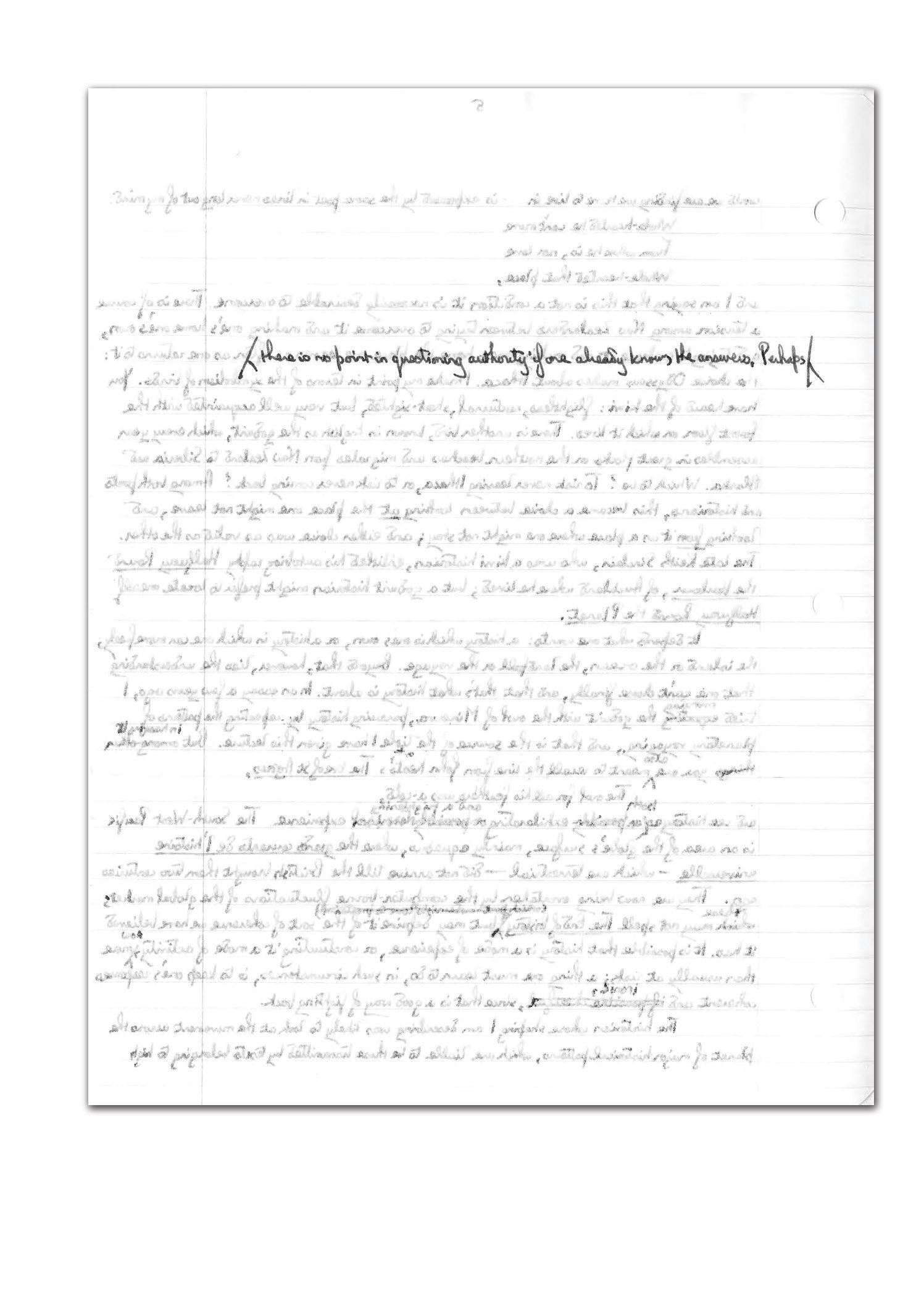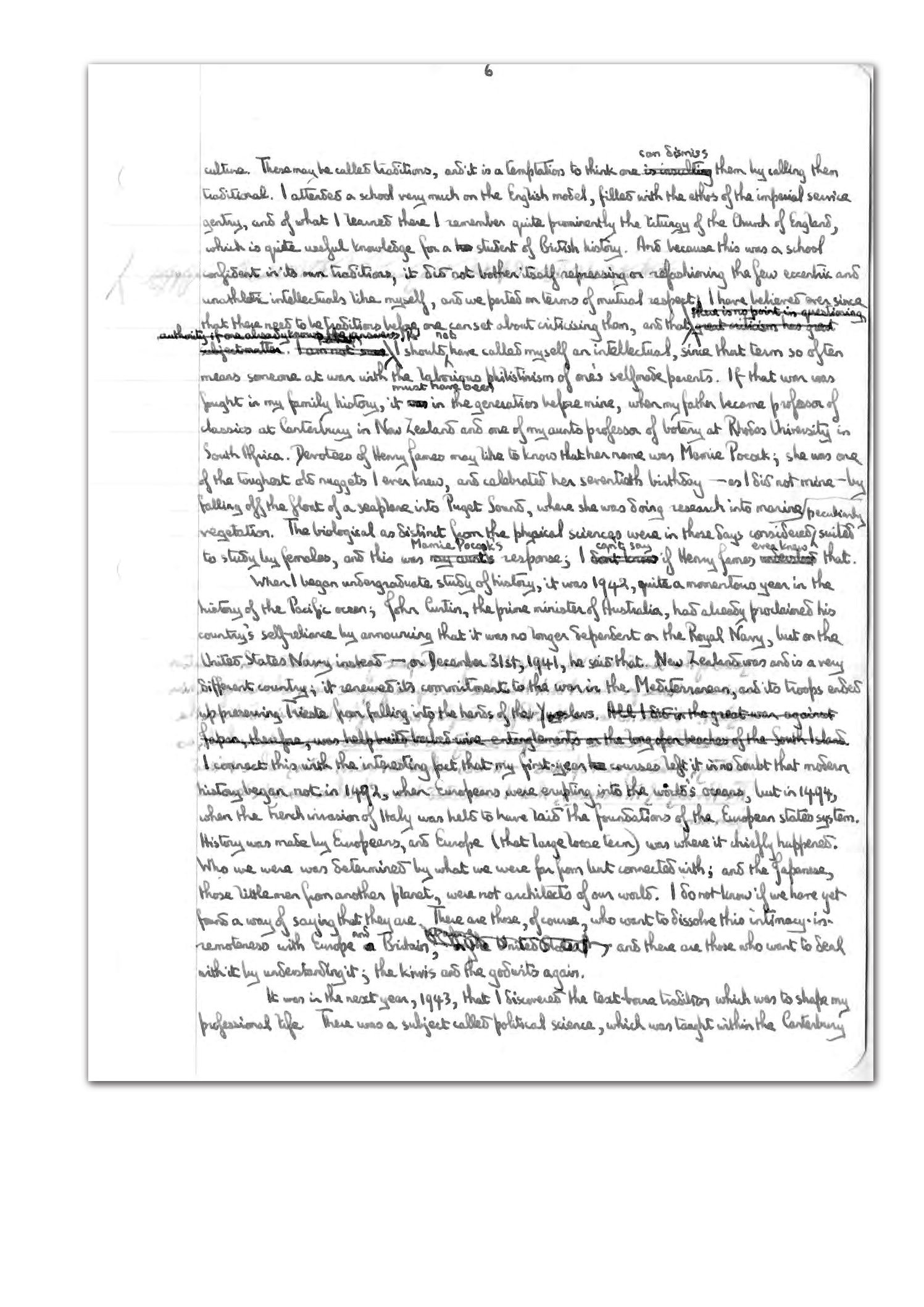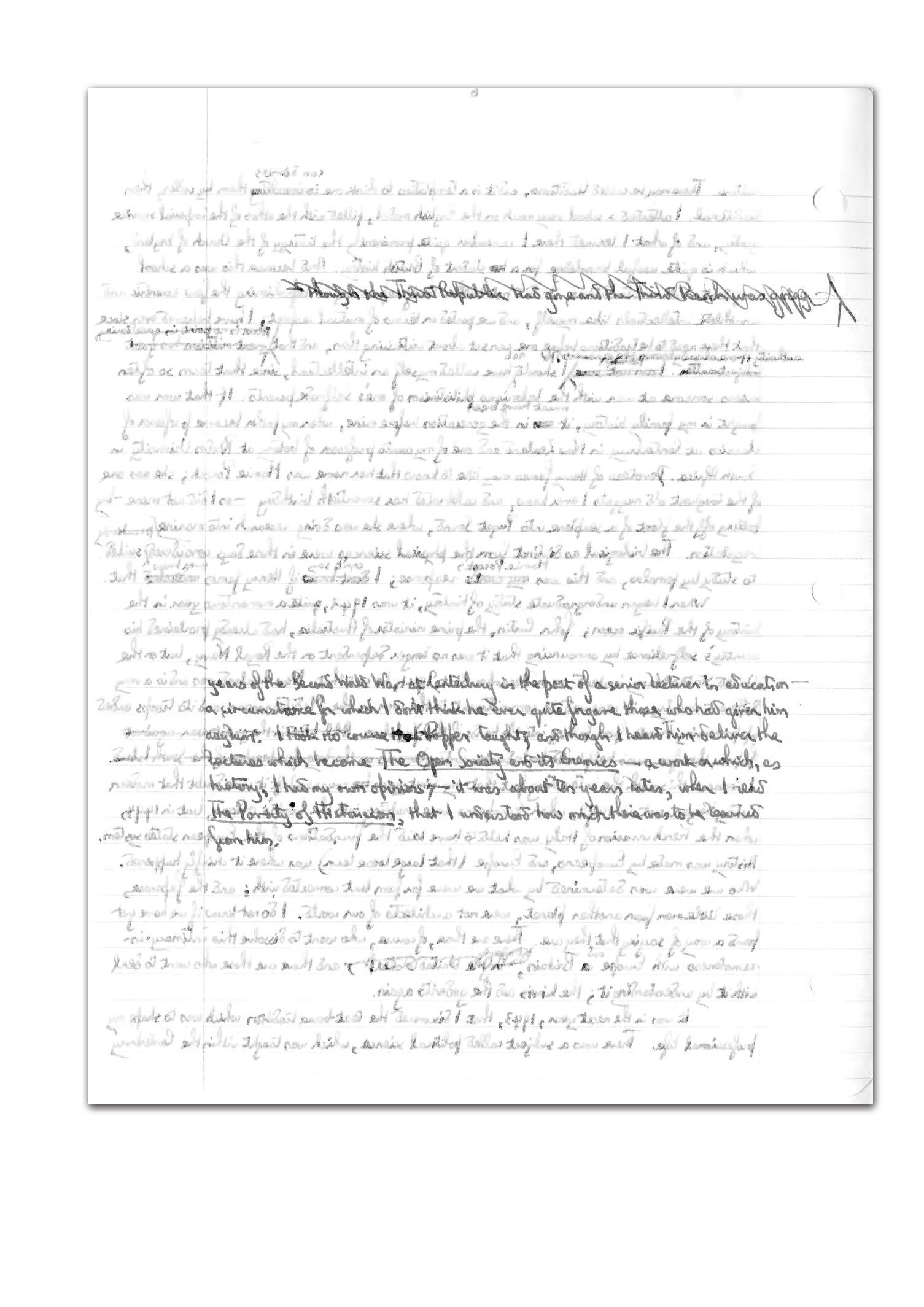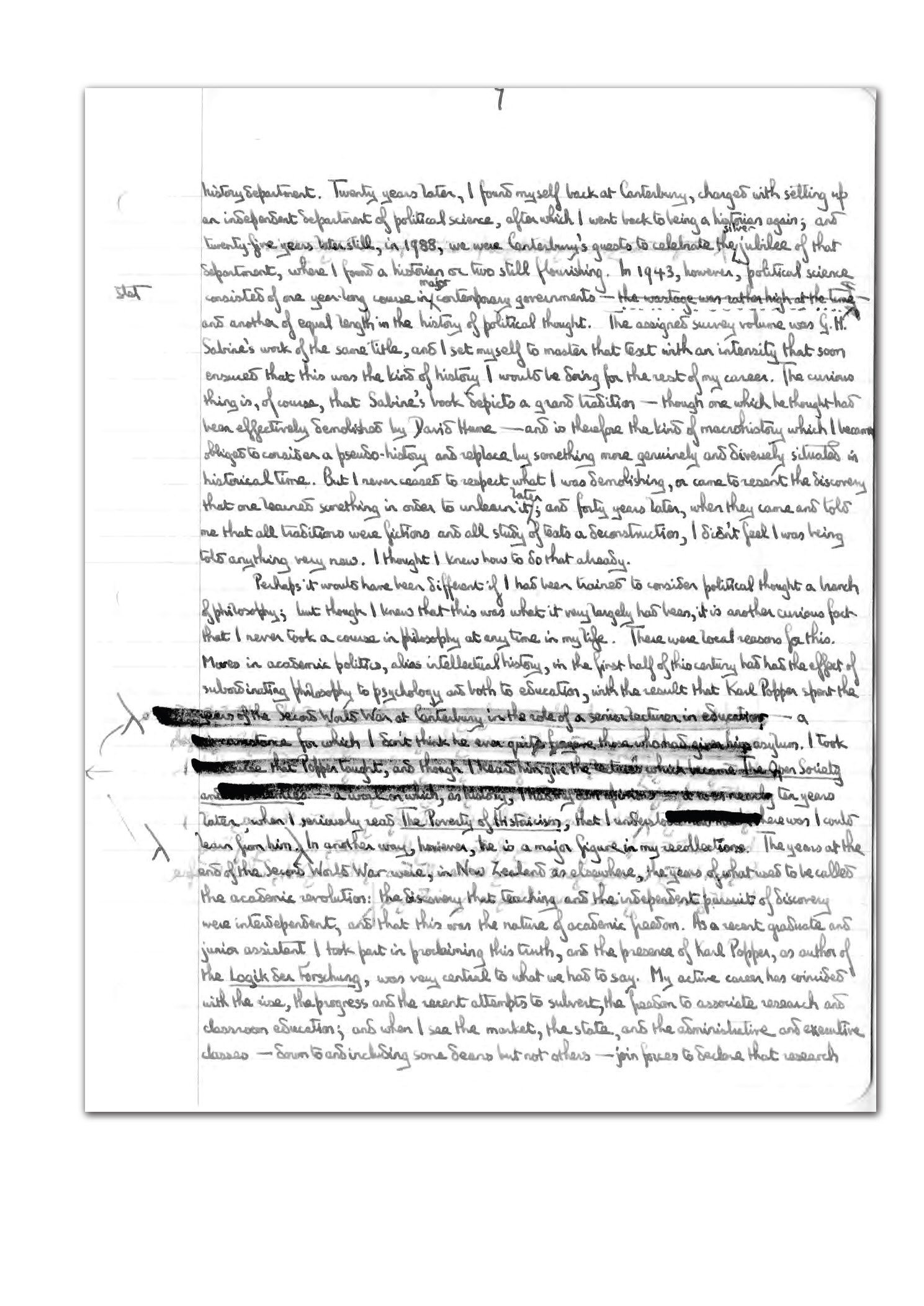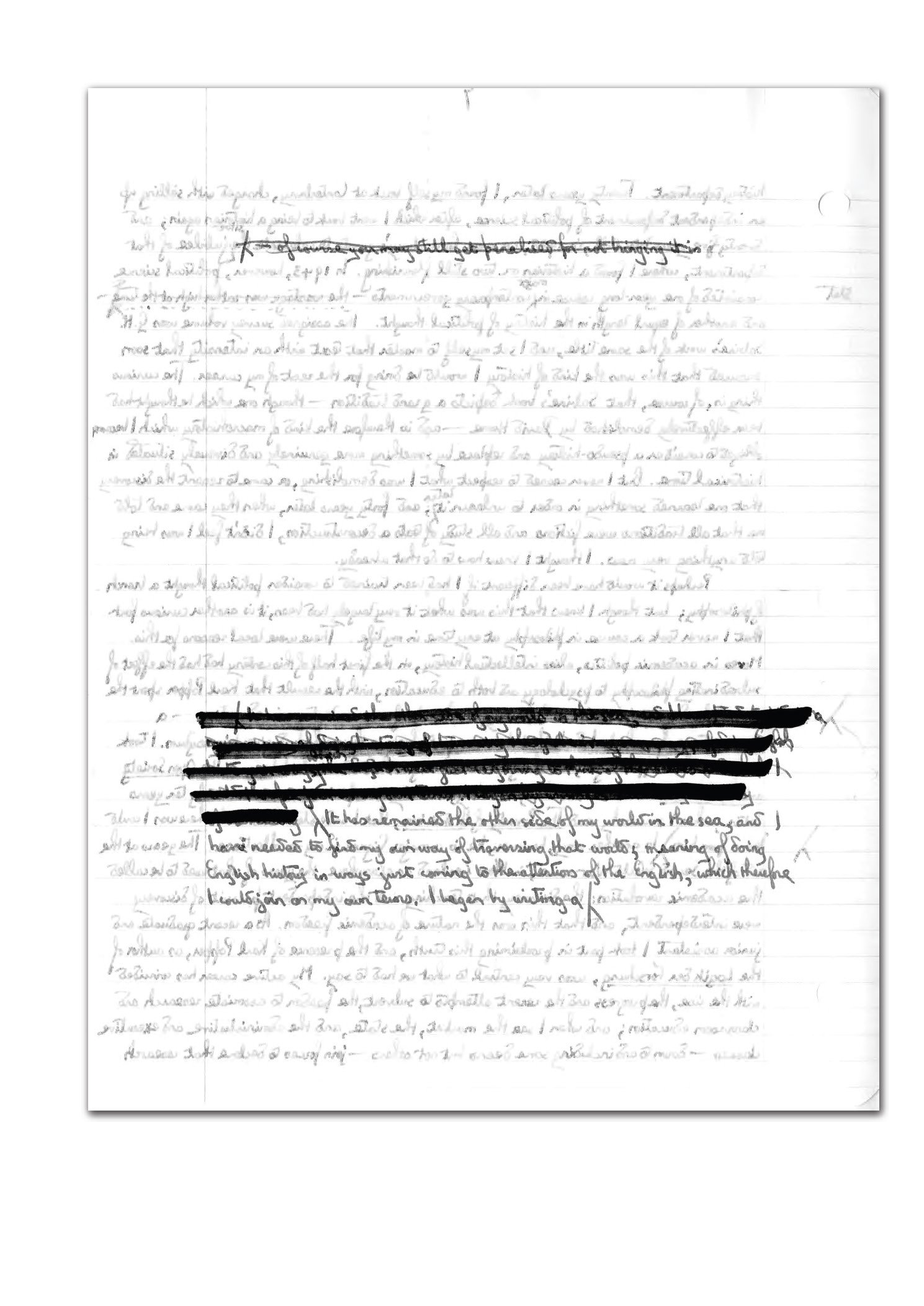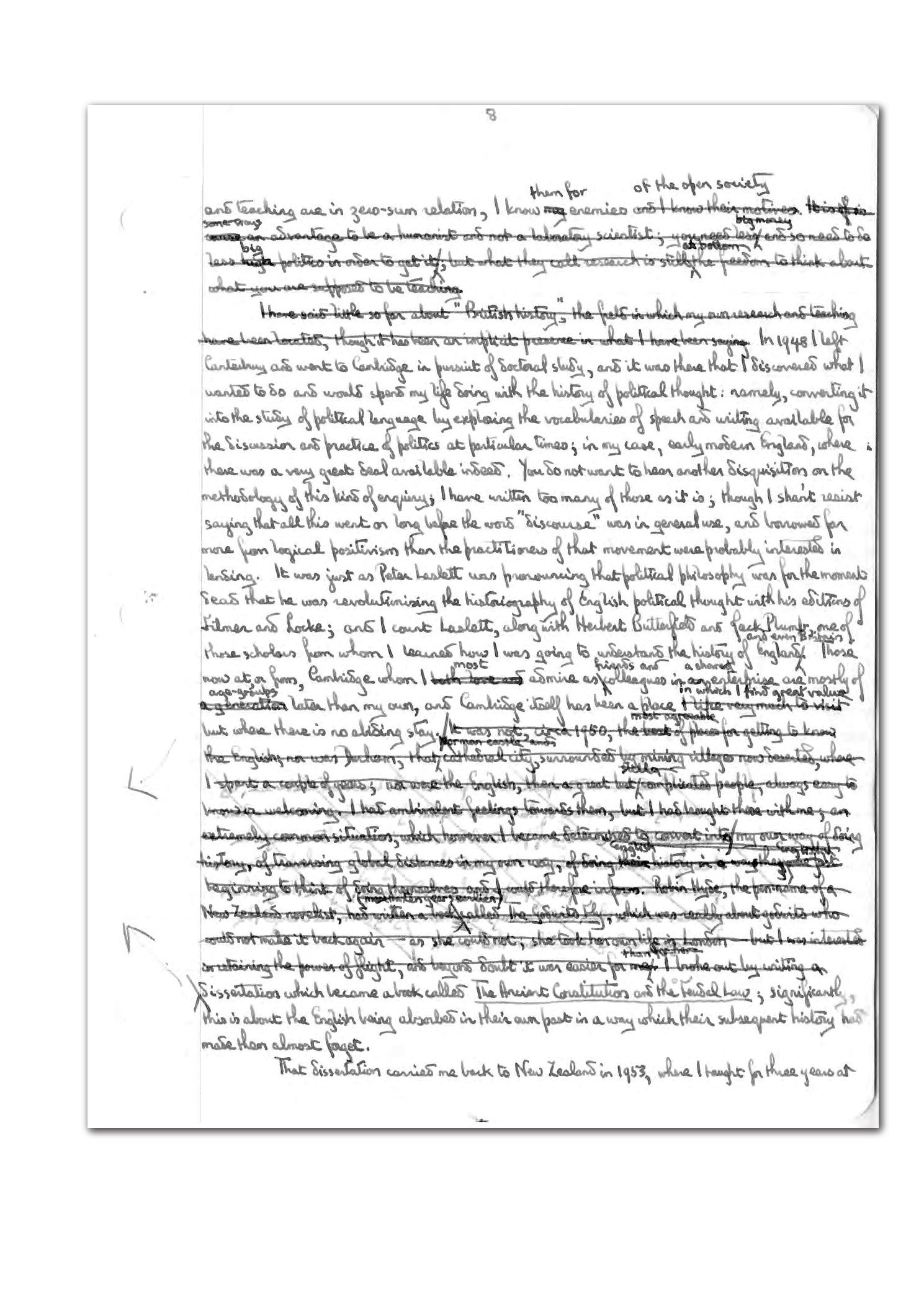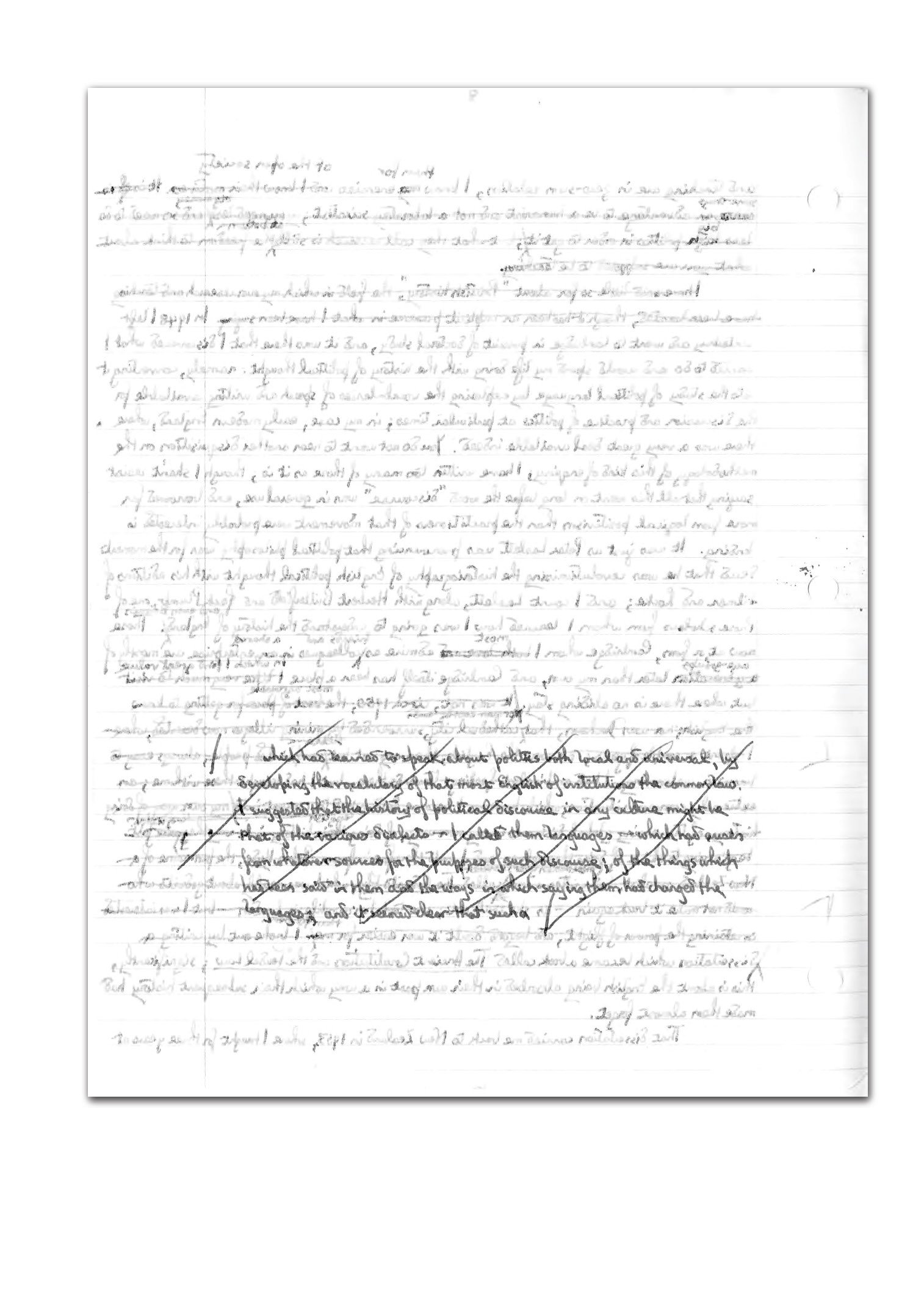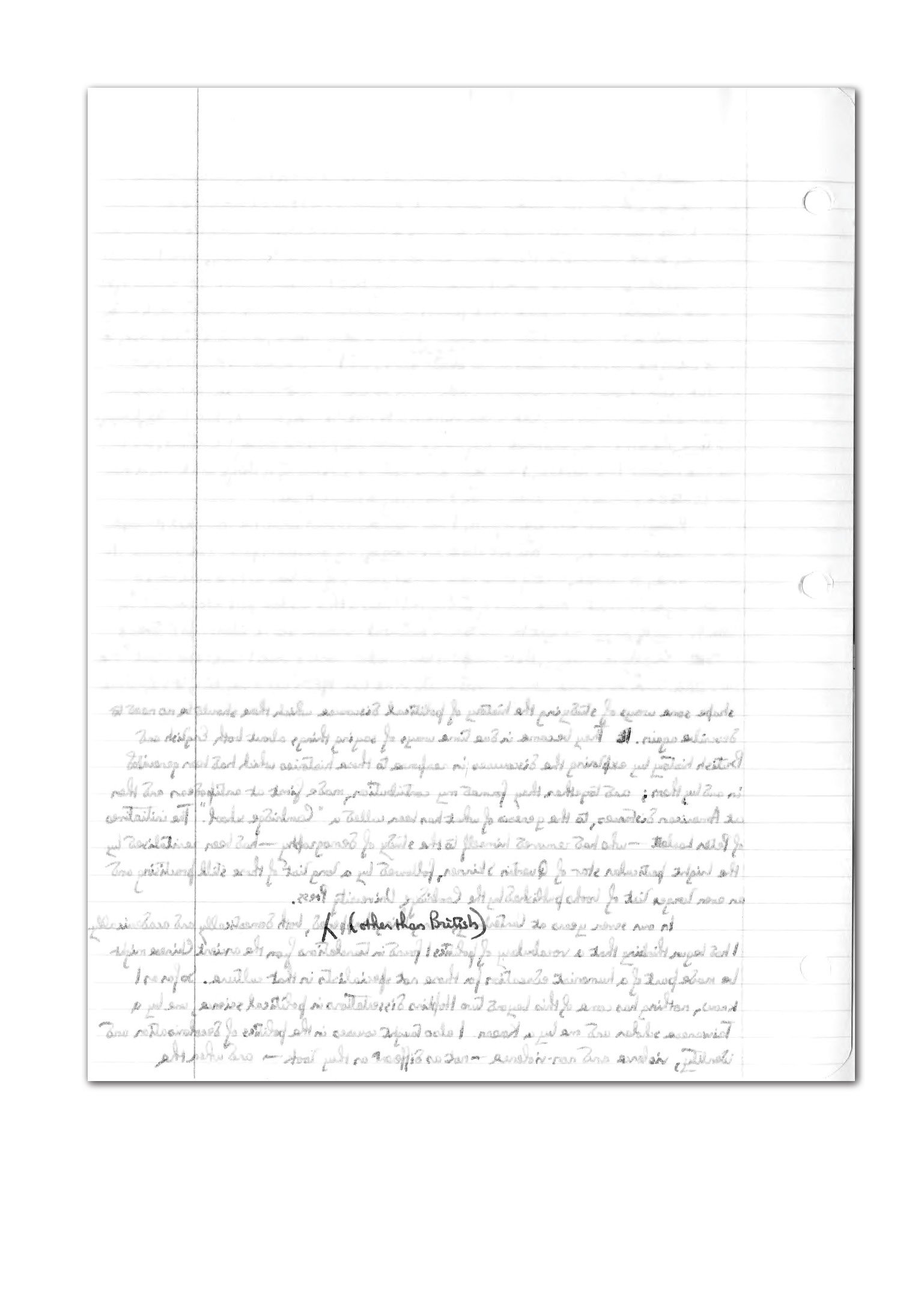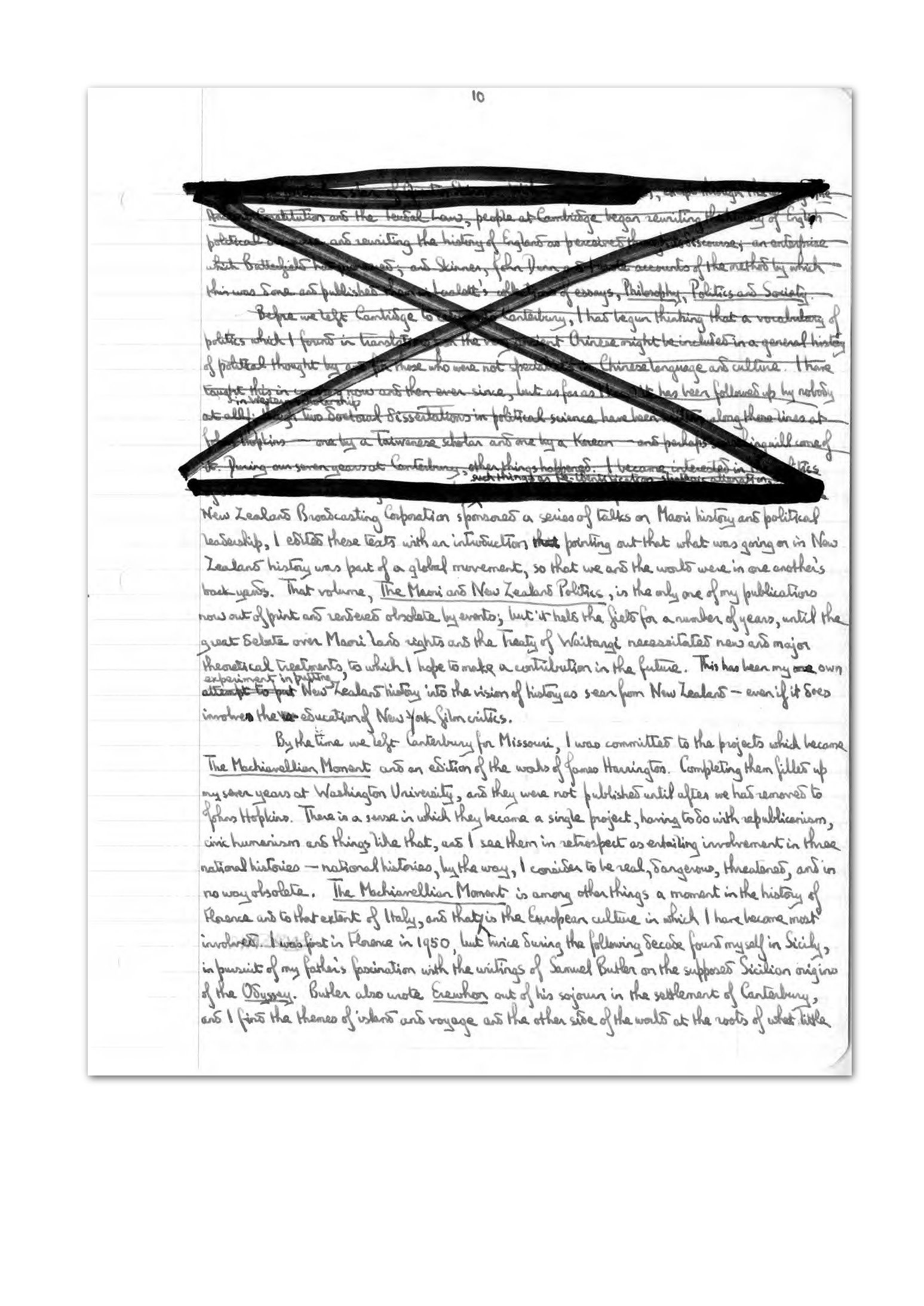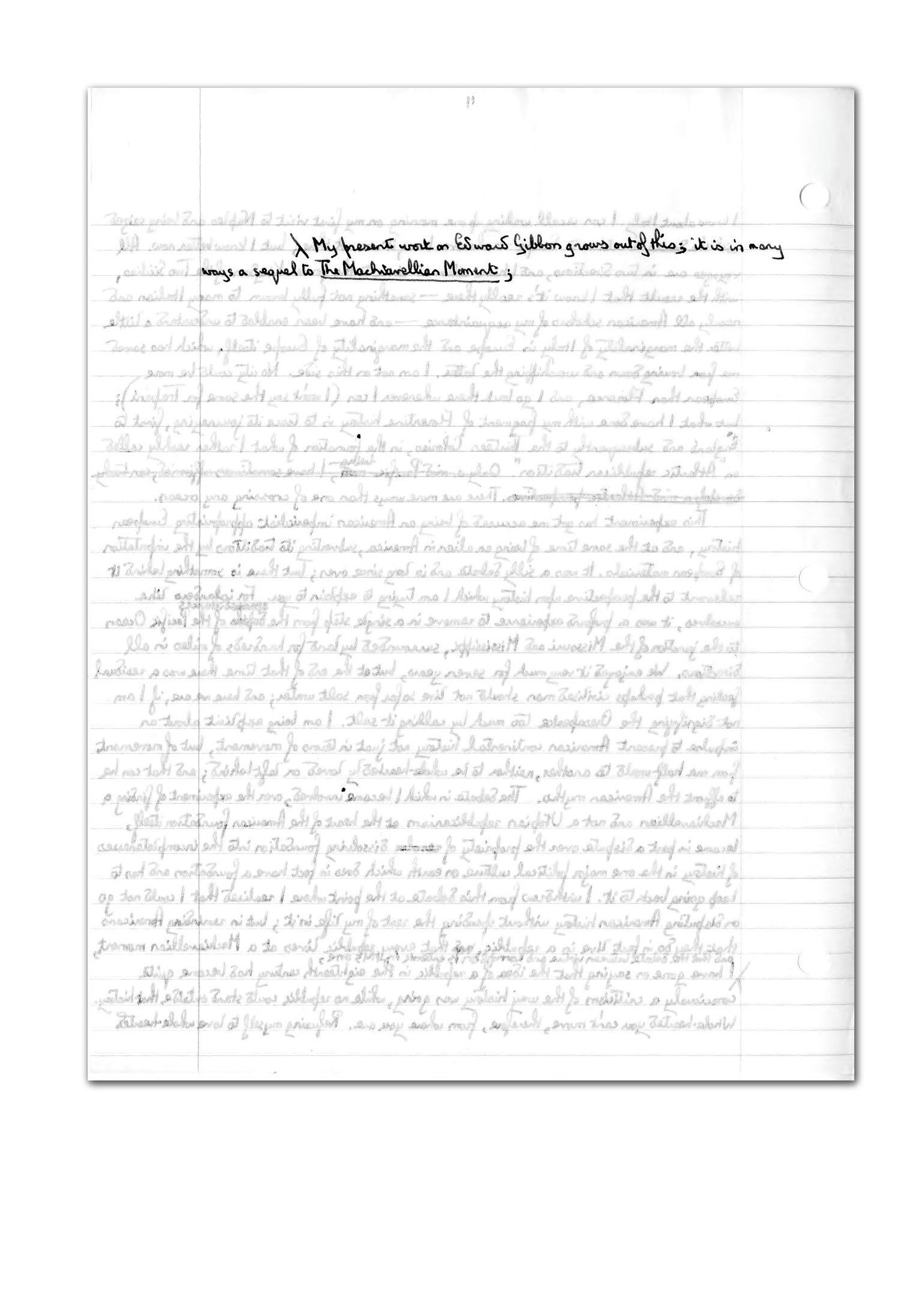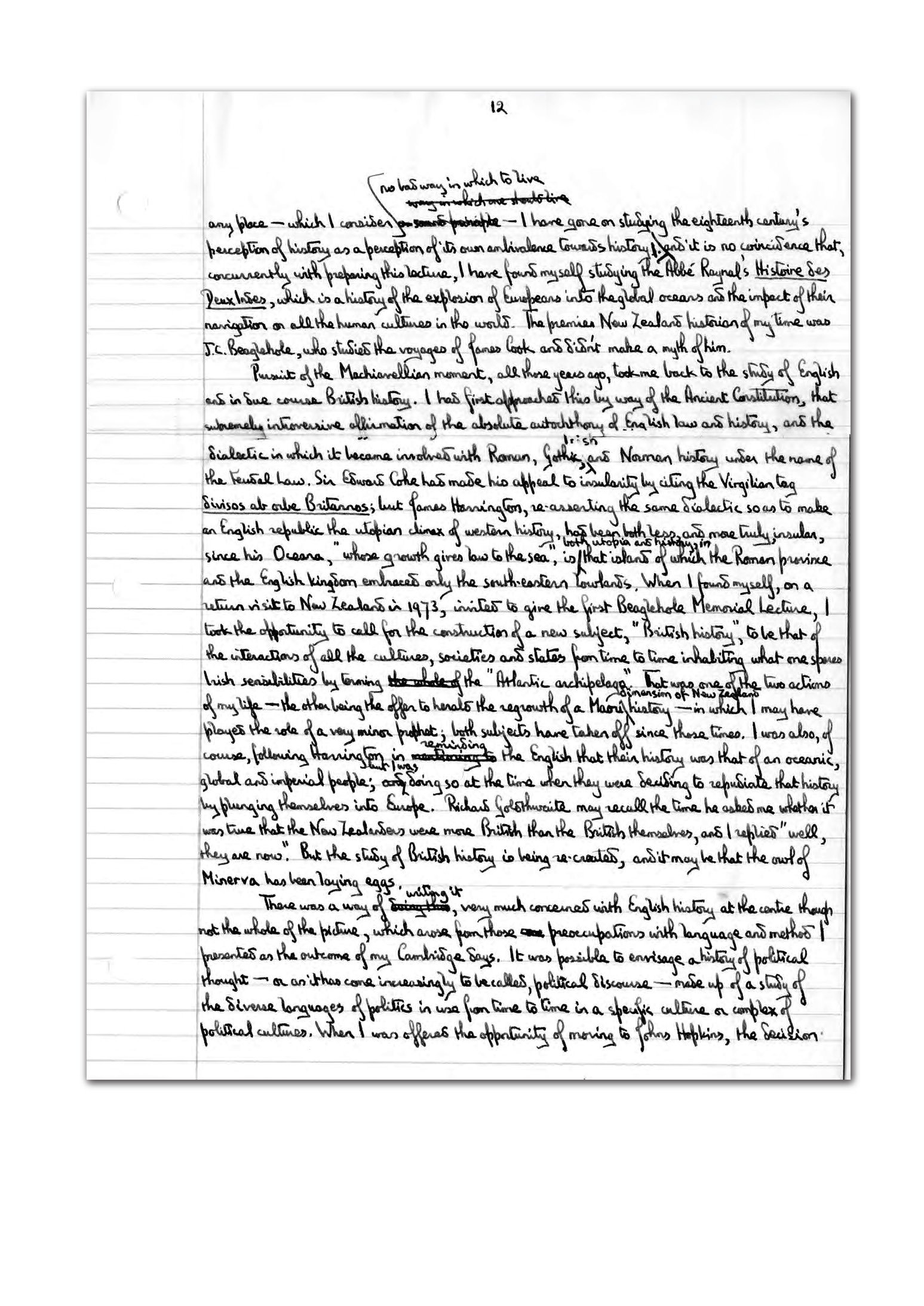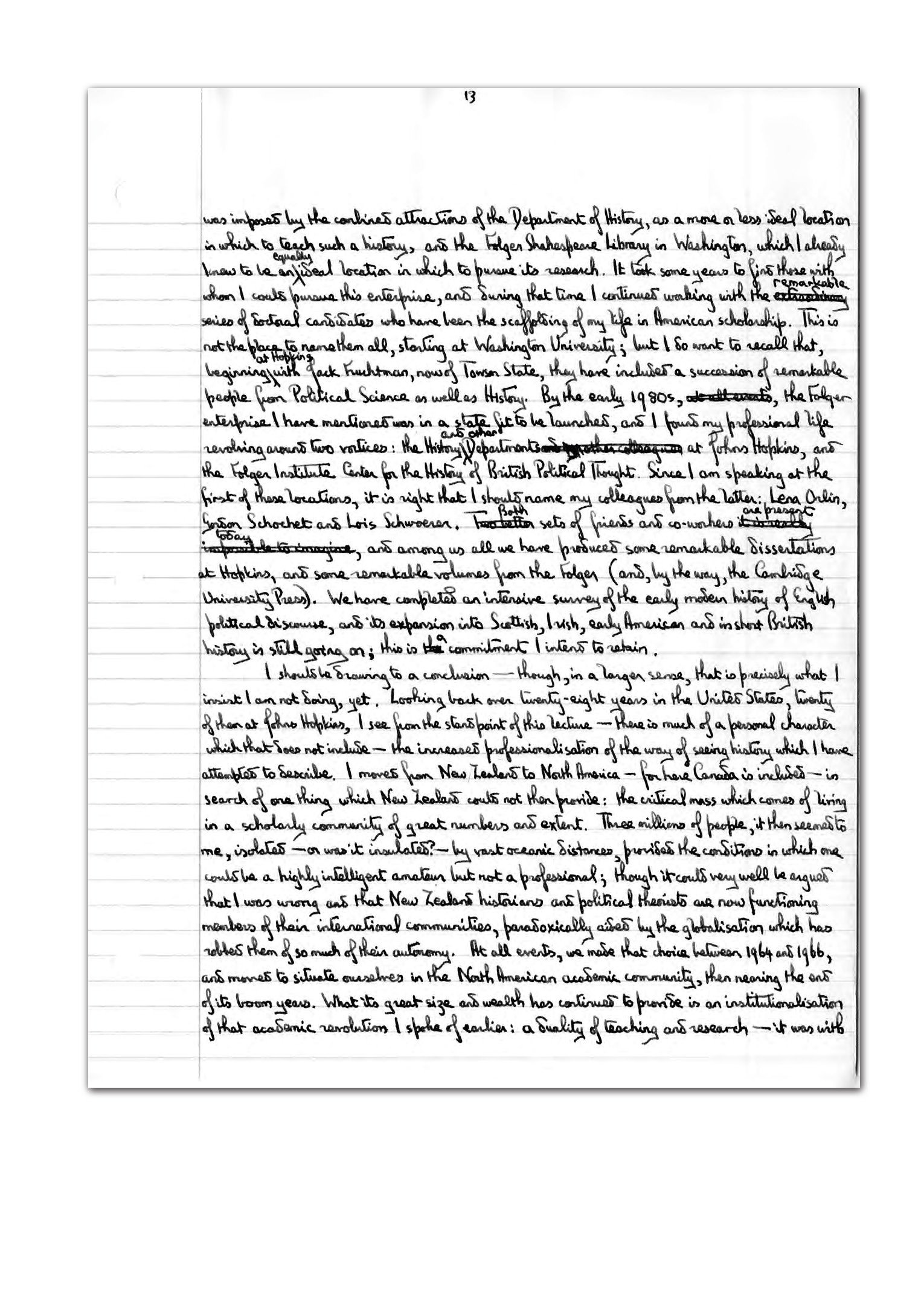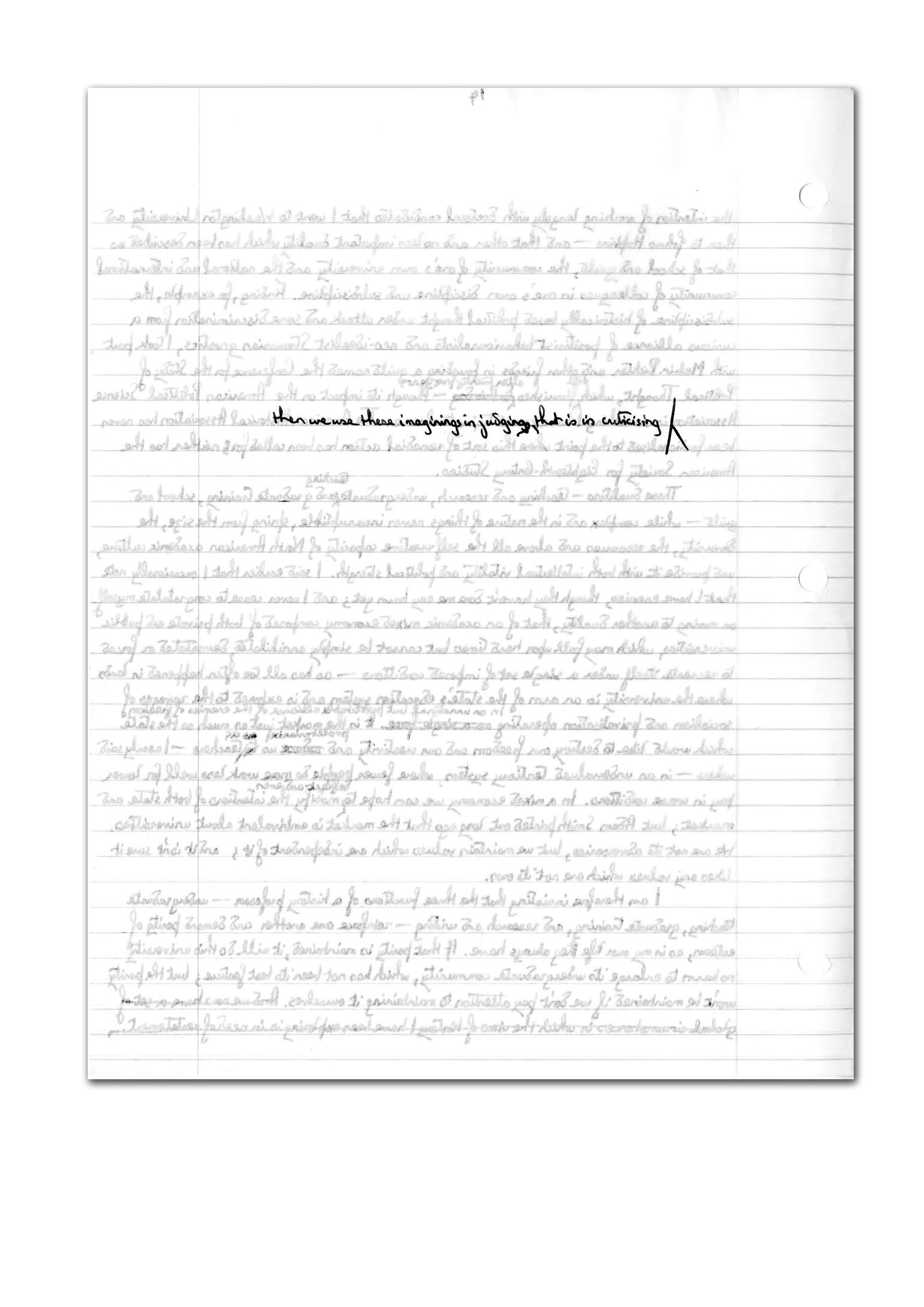The Owl Reviews his Feathers
Item No. 23.
J. G. A. Pocock
A valedictory lecture
J. G. A. Pocock died on 12 December 2023 at the age of 99. A renowned historian of political discourse and historiography, he was best known for his pioneering works The Ancient Constitution and the Feudal Law (1957), The Machiavellian Moment (1975), and Barbarism and Religion (6 vols., 1999–2015). His scholarship ranged from the Renaissance to the nineteenth century, encompassing the Italian city-states, Britain, Ireland, colonial America, and his native New Zealand. Alongside Quentin Skinner and John Dunn he was instrumental in putting forward an approach based on the recovery of discursive contexts and languages, methods that came to be associated with ‘the Cambridge School’ and that would transform the study of intellectual history. As Colin Kidd writes in his obituary, he was “a giant of the historical profession”.
Pocock was also perhaps the most self-reflective intellectual historian of his time. See for instance his essays ‘The state of the art’ (1985) and ‘Foundations and moments’ (2006), his afterwords to the reissues of The Ancient Constitution (1987) and The Machiavellian Moment (2003), and the retrospect on the latter book in the French edition (1994) and later in the journal History of European Ideas (2017). In a more personal vein he began his collection The Discovery of Islands (2005) with an essay, ‘The antipodean perception’, on ‘what it is to write history from New Zealand’ and how he came to do it, placing himself in the context of a British settler society.
More autobiographical still is the manuscript presented below. Titled ‘The owl reviews his feathers’, it was given as a valedictory lecture in 1994 upon Pocock’s retirement from the history department at Johns Hopkins, where he had taught for twenty years and continued to be active long after. He would later draw on parts of this piece for ‘The antipodean perception’. In this lecture, however, Pocock recounts more about his life and career than in any of his other essays. He ends by reflecting on the ‘academic revolution’ that saw the marriage of teaching and research, and on history as an exercise of (in Gibbon’s words) “the nobler faculties of the imagination and the judgement”.
Hereafter is a copy of Pocock's handwritten draft of the lecture, in which one can follow the process of his composition. (Writing by hand was, as he remarks in the lecture, the only way he could think and compose.) The transcription, also below, incorporates his corrections as well as some of the more interesting deletions.
Zachary Larsen
To see more of Pocock’s papers, visit the Intellectual History Archive.
Transcription
![Pocock ‘The owl reviews its feathers’[15] copy.1.jpeg](https://images.squarespace-cdn.com/content/v1/64ac72127a654b3aacbc0989/1703177278314-ERH4WG9XIHMEYX8U3LMZ/%E2%80%8EPocock+%E2%80%98The+owl+reviews+its+feathers%E2%80%99%5B15%5D+copy.%E2%80%8E1.jpeg)
![Pocock ‘The owl reviews its feathers’[15] copy.2.jpeg](https://images.squarespace-cdn.com/content/v1/64ac72127a654b3aacbc0989/1703177278083-PXPEIQ35M0BRF3KW81S3/%E2%80%8EPocock+%E2%80%98The+owl+reviews+its+feathers%E2%80%99%5B15%5D+copy.%E2%80%8E2.jpeg)
![Pocock ‘The owl reviews its feathers’[15] copy.3.jpeg](https://images.squarespace-cdn.com/content/v1/64ac72127a654b3aacbc0989/1703177280234-VTJ5M0OE3IWAAX718KJI/%E2%80%8EPocock+%E2%80%98The+owl+reviews+its+feathers%E2%80%99%5B15%5D+copy.%E2%80%8E3.jpeg)
![Pocock ‘The owl reviews its feathers’[15] copy.4.jpeg](https://images.squarespace-cdn.com/content/v1/64ac72127a654b3aacbc0989/1703177281107-VF20CCPORMWJFPU6HFGE/%E2%80%8EPocock+%E2%80%98The+owl+reviews+its+feathers%E2%80%99%5B15%5D+copy.%E2%80%8E4.jpeg)
![Pocock ‘The owl reviews its feathers’[15] copy.5.jpeg](https://images.squarespace-cdn.com/content/v1/64ac72127a654b3aacbc0989/1703177282656-XZIO08Q2F1QY76Q42YB5/%E2%80%8EPocock+%E2%80%98The+owl+reviews+its+feathers%E2%80%99%5B15%5D+copy.%E2%80%8E5.jpeg)
![Pocock ‘The owl reviews its feathers’[15] copy.6.jpeg](https://images.squarespace-cdn.com/content/v1/64ac72127a654b3aacbc0989/1703177283654-AL6PIO6EJR3GX8XWQRAM/%E2%80%8EPocock+%E2%80%98The+owl+reviews+its+feathers%E2%80%99%5B15%5D+copy.%E2%80%8E6.jpeg)
![Pocock ‘The owl reviews its feathers’[15] copy.7.jpeg](https://images.squarespace-cdn.com/content/v1/64ac72127a654b3aacbc0989/1703177285330-LYW728MKMUV6BJLGI2PB/%E2%80%8EPocock+%E2%80%98The+owl+reviews+its+feathers%E2%80%99%5B15%5D+copy.%E2%80%8E7.jpeg)
![Pocock ‘The owl reviews its feathers’[15] copy.8.jpeg](https://images.squarespace-cdn.com/content/v1/64ac72127a654b3aacbc0989/1703177286136-1UFOA6ZNE6F3SBC868R8/%E2%80%8EPocock+%E2%80%98The+owl+reviews+its+feathers%E2%80%99%5B15%5D+copy.%E2%80%8E8.jpeg)
![Pocock ‘The owl reviews its feathers’[15] copy.9.jpeg](https://images.squarespace-cdn.com/content/v1/64ac72127a654b3aacbc0989/1703177287643-FOG1MCJ9FMJL9XCQGCCY/%E2%80%8EPocock+%E2%80%98The+owl+reviews+its+feathers%E2%80%99%5B15%5D+copy.%E2%80%8E9.jpeg)
![Pocock ‘The owl reviews its feathers’[15] copy.10.jpeg](https://images.squarespace-cdn.com/content/v1/64ac72127a654b3aacbc0989/1703177288662-WB0AUDZ3K4ZQZ9PQH39P/%E2%80%8EPocock+%E2%80%98The+owl+reviews+its+feathers%E2%80%99%5B15%5D+copy.%E2%80%8E10.jpeg)
![Pocock ‘The owl reviews its feathers’[15] copy.11.jpeg](https://images.squarespace-cdn.com/content/v1/64ac72127a654b3aacbc0989/1703177289755-2LVN56B0GYM5JCS3OOJD/%E2%80%8EPocock+%E2%80%98The+owl+reviews+its+feathers%E2%80%99%5B15%5D+copy.%E2%80%8E11.jpeg)
![Pocock ‘The owl reviews its feathers’[15] copy.12.jpeg](https://images.squarespace-cdn.com/content/v1/64ac72127a654b3aacbc0989/1703177289722-MNX85WRUKV90LV675LOD/%E2%80%8EPocock+%E2%80%98The+owl+reviews+its+feathers%E2%80%99%5B15%5D+copy.%E2%80%8E12.jpeg)


